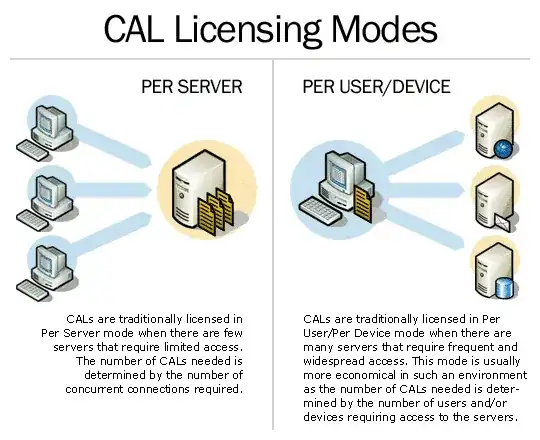Yes, though not all kinds of Windows Server licenses include CALs. But let's say these ones does and 5 per copy at that (I think that can vary as well?) - then it's pretty simple really (but always call your Microsoft Licensing Partner beforehand - they should be very helpful with any questions on this topic).
Edit: Added clarification from Jay Michaud about not all server licenses actually including CALs.
If you buy two Server licenses which both explicitly includes 5 CALs, you've then got 10 CALs. So far so good.
You now have to decide which licensing scheme to use, there are several:
- Server-side
- Seat-side (if you chose per seat)
A seat is a device or a user - meaning that each user OR client pc needs to have one CAL each. With this CAL, they can connect to any number of servers in the domain. The actual Access License resides with the user or the client pc when in "per seat" mode - giving them licensed access to anything in the domain. This license follows the user/device around but is unique to that user/device and a tad complicated to reallocate.
A per server license is defined for a single server, which then serves a number of concurrent connections instead. As you'll need one CAL per server AND connection - this mode is rarely used because it will require rather specific circumstances to be cheaper (requiring less CALs overall).
You are also always allowed to have up to 2 administrators accessing a server without any CALs at all - as long as those users/devices/connections are only for administration and not actual user scenarios.
There are rules on how you can mix and change the licensing schemes which are rather restrictive at times but not something I'd dive into here without an expert - but just so you know ^^
